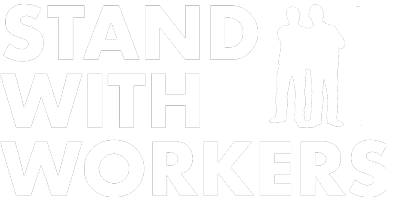I recently sued my union. It’s not something I ever expected to do. But I also never thought an organization that claims to champion workers’ rights would deny me the opportunity to exercise mine.
I’ve been working as an income maintenance caseworker for the Commonwealth of Pennsylvania since 2014. My job is to review applications and eligibility for the Commonwealth’s welfare programs.
Not long after I was hired, I learned that my position is covered by a union contract. This meant that whether I was a member or not, Service Employees International Union would deduct money from every paycheck.
Union membership dues are roughly $600 a year. Nonmember fees were almost the same, so I became a dues-paying member. By 2016, I had developed a low opinion of the union and didn’t want to give it $1 more than it was entitled to, so I asked to pay nonmember fees instead.
As a Philadelphia native, I know and appreciate the city’s rich union history. I’m not against unions and I understand why some people want to be in unions. This union doesn’t represent my interests or point of view. It doesn’t solicit feedback from workers. It doesn’t care about what we want to see in contracts or improving the work environment. Instead, the union exists to push politics — hard. The union urges workers to support certain candidates. Union representatives talk about which workers vote and who didn’t vote in recent elections to pressure workers to support the union-backed candidates. Peer pressure to toe the union line is tremendous, and as an independent thinker I had enough of it.
Unsurprisingly, when I told SEIU representatives I wanted to resign they cared even less about what I had to say than before. The union didn’t honor my request to resign membership. I felt stuck.
Then in June 2018, I heard about the U.S. Supreme Court decision in the case Janus v. AFSCME. As a government employee, this court case impacted me personally. The court ruled that no government worker can be forced to pay money to a union in order to work in public service.
The ruling meant I finally was free of the union. I didn’t have to be a member. Instead of paying nonmember fees, I wouldn’t have to pay anything at all.
The union had other ideas.
When I told union representatives I didn’t want to be a member anymore, they didn’t respect my decision. They tried to negotiate with me, intimidate me, and then iced me out. In August 2018, I sent letters to the Commonwealth and SEIU to formally demand union dues stop being deducted from my paycheck, but the deductions didn’t stop.
Instead, I was told the dues continue until July 2019.
By this point I wasn’t just frustrated. My rights were being blatantly violated. The Supreme Court had just ruled this summer that no one — including me — could be forced to give their money to a government union. Yet that’s exactly what was happening to me. So, I reached out to the Liberty Justice Center, which fought the Janus case, and asked for help.
Only after the union and Commonwealth learned I had lawyers on my side did the deductions stop. This was almost six months after I first attempted to exercise my Janus rights. But I pressed on with my lawsuit, Oliver v. SEIU, because I have not been fully reimbursed for the dues illegally deducted, nor do I want a union that ignored my rights to represent me in contract negotiations in the future. My lawsuit was filed in February and is pending in federal court.
No Pennsylvanian should have his or her rights ignored. The Commonwealth, the SEIU and every other government employer and union in the country has a duty to honor workers’ First Amendment rights. If they do not, my case may not be the only one they’ll face.
Shalea Oliver is an income maintenance caseworker for the Commonwealth of Pennsylvania, working on welfare programs such as SNAP and TANF for the citizens of Philadelphia.

